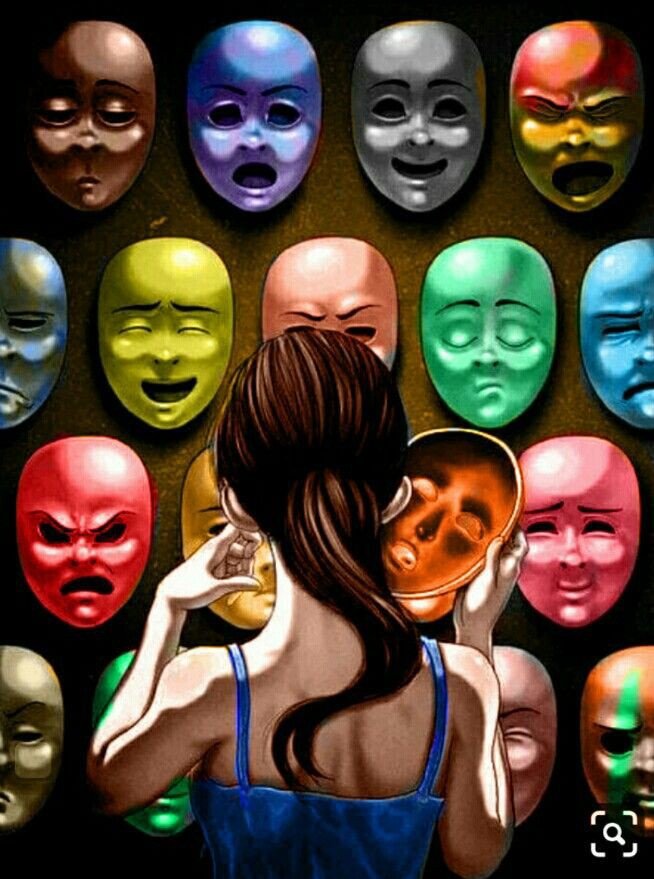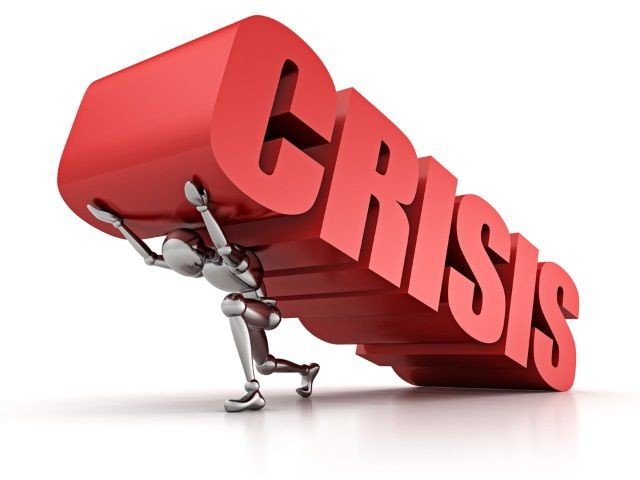IDENTITY CRISIS

Source
Many people may have heard the term "identity crisis," but they may not completely get what it means. It's more than just a catchphrase in psychology; it refers to a deep experience in which a person struggles with identity issues and questions about their place in the world. An identity crisis can be difficult and transforming, whether it occurs in adolescence, midlife, or at any other stage.
What is the definition of an identity crisis?
When someone has an identity crisis, they doubt their sense of self or their place in the world. Erik Erikson, a psychologist, coined the term, believing that people go through stages of growth and, at times, encounter important hurdles in understanding themselves. An identity crisis happens when a substantial shift or incident pushes a person to reassess their ideas, values, or life roles.
Common Causes of an Identity Crisis
Even though identity crises can occur at any age, specific life experiences frequently set off this introspective phase. A few typical reasons are as follows:
1.Significant life changes: Things like relocating, changing jobs, ending a relationship, or starting a new one might cause emotions of uneasiness.
2.Cultural or society expectations: There may be internal conflict when societal norms and expectations collide with an individual's personal ideals or desires.
3.Traumatic experiences: While a person reassesses their sense of self in the wake of a loss, sorrow, or major emotional trauma, it might cause an identity crisis.
4.Conformity pressure: When one's personal identity conflicts with the expectations of society, the pressure to fit into roles such as those of a lover, parent, friend, or professional can lead to conflict.
Symptoms of an Identity Crisis
Although an identity crisis can take many different forms, the following are some typical indications that someone is having trouble with who they are:
1.Confusion over life choices: A person may be unsure of their job route, relationships, or personal ideals.
2.Constant self-reflection:They may spend a significant amount of time reflecting on who they are and what they believe in.
3.Isolation: Struggling with identification can make people feel as if they don't belong or are cut off from others.
4.Emotional distress:Anxiety, sadness, or feelings of hopelessness may accompany an identity crisis.
5 Behavioral changes: As people seek to "find" themselves, they may try out different interests, styles, or social groups in pursuit of significance.
The Significance of an Identity Crisis:
While the word "crisis" may sound unpleasant, experiencing an identity crisis is not always a terrible thing. In fact, it can be a valuable aspect of human development and self-exploration. When someone challenges who they are or what they believe, it allows them to reassess their beliefs, objectives, and priorities. For example, a person who has an identity crisis in their profession may emerge with a better understanding of their genuine passions and interests. Similarly, someone suffering with their role in a relationship may have a greater understanding of what they require from their spouse or how to better support their loved ones.
How to Get Through a Personality Crisis:
It can be difficult to deal with an identity crisis, but there are strategies to get through this unsettling time.
1.Consider your values: Give some thought to what matters most to you. What do you value most in your life—personal, professional, and otherwise? Clarifying your true priorities might be achieved by jotting down your ideas in a journal.
2.Embrace change: Recognize that shedding old identities is frequently necessary for progress. Be willing to investigate novel pursuits, pastimes, or viewpoints.
3.Seek support: You can get insightful advice and feel less alone during this time by speaking with a therapist, family member, or trusted friend.
4.Take action: As soon as you feel more confident about who you are, begin implementing little adjustments that are consistent with your ideals. This could entail changing your relationships, taking on new duties, or going after a different job route.
5.Remember to be patient with yourself: self-discovery takes time. Give yourself time to delve into various aspects of your identity without feeling obligated to know everything right away.
Identity Crisis at Various Stages of Life:

Source
Adolescence: A lot of people typically go through their initial identity crisis around this time. Teens are figuring out who they are and what kind of person they want to be in the world.
Early adulthood: When making decisions about relationships, occupations, colleges, and other aspects of life, young adults may go through an identity crisis as they try to figure out what really makes them who they are. -
Midlife:People in their 40s or 50s may begin to rethink the course of their lives and reevaluate their beliefs and objectives as a result of a well-known identity crisis. -
Later life: As people get older and consider their legacy or retire, they could experience an identity crisis. Feelings of loss or the need to redefine yourself may arise during this time.
In conclusion
Despite being challenging, an identity crisis can be a crucial stage in one's growth. It provides an opportunity to review your convictions, reframe your objectives, and make decisions that contribute to living a more genuine life. You may overcome an identity crisis and come out of it with a better understanding of who you are and where you want to go in life by accepting the process of self-discovery and asking for help when you need it. Recall that identity is dynamic and changes as you mature, gain knowledge, and adjust to the ups and downs of life.
Thank you
Harrison Eugene

